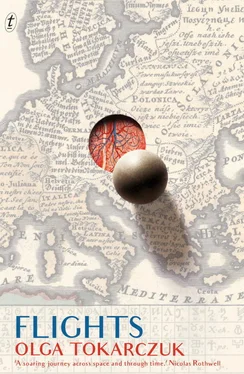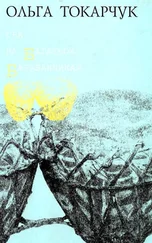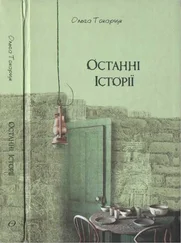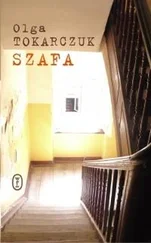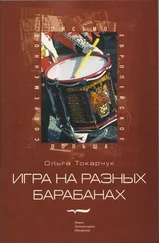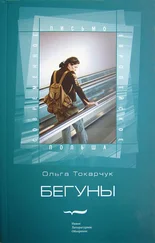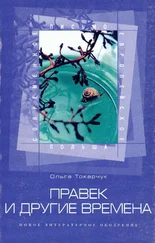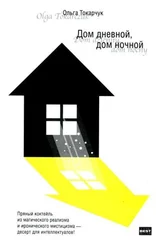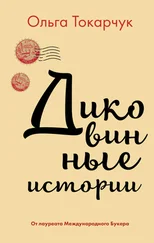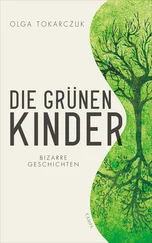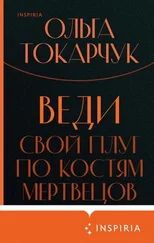It must be because she barely slept last night, because she’s barely eaten anything today – now she feels faint. The tears won’t flow, dry beds where they’re supposed to be.
She jumps up and walks out. Stiffly, straight to the metro.
It feels like she has had an experience of some kind, that something’s got into her, making her tense on the inside like a string on a musical instrument, causing her to make a clean sound, inaudible to anyone. A quiet sound, meant just for her body – a short-lived concert in a brittle acoustical shell. She still listens for it anyway, all her attention turned inward, but in her ears there is only the rush of her own blood.
The stairs go down, and she has the impression that it lasts forever, some people going down, others up. Ordinarily her gaze slips over others’ faces, but now Annushka’s eyes, struck by that sight in the church, can’t manage. Her gaze alights on each and every passerby – and every face is like a slap, hard, stinging. Soon she won’t be able to bear it anymore, she’ll have to cover her eyes like that crazy woman in front of the station, and just like her she’ll begin to shout out curses.
‘Have mercy, have mercy,’ she whispers and sinks her fingers into the handrail, which moves faster than the stairs; if Annushka doesn’t let go she’ll fall.
She sees the silent swarm of people going up and down, shoulder to shoulder, packed in. They glide toward their spots as though on tethers, heading somewhere in the suburbs, to a tenth floor, where they can pull the covers over their heads and fall into a sleep made up of scraps of day and night. And in reality in the morning that sleep does not dissolve – those scraps form collages, splotches; some configurations are clever, you could almost say premeditated.
She sees the brittleness of arms, the fragility of eyelids, the unstable line of people’s lips, readily contorting into grimace; she sees how weak their hands are, how weak their legs – they will not, cannot, carry them to any destination. She sees their hearts, how they beat in time, some faster, some slower, an ordinary mechanical movement, the lungs’ sacs are like dirty plastic bags, you can hear the rustle of exhalations. Their clothes have become transparent, so she watches them wed entropy. Our bodies are poor, dirty, grist – without exception – for the mill.
The escalators take these beings all straight down into the depths, into the abyss, here are the eyes of the cerberi in the glass booths at the bottom of the stairs, here the fraudulent marble and columns, massive sculptures of demons – some with sickles, others with sheaves of grain. Massive legs like the columns, giants’ shoulders. Tractors – infernal machines towing sharp-toothed instruments of torture that deal the earth never-healing wounds. From all sides cramped groups of people, their hands raised pleadingly in panic, their mouths open to scream. The Last Judgement takes place here, in the depths of the metro, lit by crystal chandeliers that cast dead yellow light. The judges are nowhere to be seen, it’s true, but everywhere you feel their presence. Annushka wants to retreat, run up against the current, but the escalators won’t permit her to, she has to keep going down, she won’t be spared. The mouths of the underground trains will open before her with a hiss and suck her into their gloomy tunnels. But of course the abyss is everywhere, even on the upper floors of the city, even on the tenth and sixteenth floors of the high-rise buildings, at the tops of spires, on the tips of antennas. There is no escape from it. Wasn’t it maybe this the madwoman was screaming about, in between her curses?
Annushka staggers, leans against a wall. It imprints her wool twill coat with white traces, anointing her.
She has to get off, it’s dark already, she gets off slightly at random because you can’t see anything out the windows of the bus, frost has already etched silvery twigs across them – but she knows the route by heart, she was right. Just a few courtyards – she takes a shortcut – and she’ll be at her building. But she slows, her legs don’t want to take her to her destination, they resist, her steps get smaller and smaller. Annushka stops. She looks up and sees the lights on in her apartment. They must be waiting for her – so she starts up again, but a second later she stops again. The cold wind pierces through her coat, blows apart the bottom, seizes her thighs with its icy fingers. Its touch is like razor blades, like broken glass. Tears fly down her cheeks from the cold, which suits the wind, finally providing it a way to sting her face. Annushka rushes on, towards their stairwell, but when she gets to the door she turns, puts up her collar, and as fast as she can she goes back to where she just came from.
It’s only warm in the big waiting room at the Kievsky Station or in the bathroom. She stands unable to make her mind up as the patrols pass by her (they always walk with a slow, loose step, moving their legs lightly as though meandering along a seaside boulevard), she pretends to read the timetable; she doesn’t even know why she’s afraid, after all she’s done nothing wrong. And in any case the patrols are interested in something else, unerringly singling out olive-skinned men in leather jackets and women in headscarves from the crowd.
Annushka walks out in front of the station and sees from afar that shrouded woman still scrambling, her voice hoarse from cursing – in fact, neither it nor the curses themselves are really recognizable now. Good then – after a moment’s hesitation she approaches her calmly and stands in front of her. This throws the woman off for just a second – she must be able to see Annushka through the material that covers her face. Annushka takes another step closer and now stands so near she can smell the woman’s breath – dust and must, old oil. The woman speaks softer and softer until she finally falls silent. Her scrambling turns into rocking, as though she can’t stand still. They stand facing each other for a moment as people pass them by, but indifferently; one person just glances over at them, but they’re in a hurry, their trains will leave at any moment.
‘What are you saying?’ asks Annushka.
The shrouded woman freezes, holds her breath, and then starts sideways, spooked, towards the passage through the construction, over the frozen mud. Annushka follows her, does not take her eyes off her, is a few steps behind her, behind her quilted coat, behind her tiny teetering wool felt boots. She will not let her get away. The woman looks over her shoulder and tries to speed up, almost running, but Annushka is young and strong. She has strong muscles – how many times has she carried both Petya and his carriage all the way down the stairs, how many times has she carried them all the way up, when the lift wasn’t working.
‘Hey!’ Annushka shouts intermittently, but the woman gives no reaction.
They pass through the courtyards between homes, pass rubbish heaps and trodden squares. Annushka doesn’t feel tired but drops the bag with flowers for the cemetery; it would be a waste of time to go back for it.
Finally the woman squats and pants, unable to catch her breath. Annushka stops a few metres behind her and waits for her to stand back up and turn to her. The woman has lost; now she has to surrender. And sure enough, she looks over her shoulder, and you can see her face, she’s pulled the covering off her eyes. She has light blue irises, frightened, looking at Annushka’s shoes.
‘What do you want from me? Why are you chasing me?’
Annushka doesn’t answer, she feels as though she’s caught a big animal, a big fish, a whale, and now she doesn’t know what to do with it; she doesn’t need this trophy. The woman is afraid, clearly in this fear all her curses have escaped her.
Читать дальше
